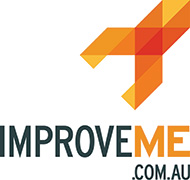Blog
Advice from the experts – edition two
 ImproveMe:
ImproveMe:
Anastasia, you graduated from university during the last recession. What challenges did this create for you in trying to secure a full-time role and what advice do you have to anyone seeking employment in today’s similarly tough economic environment?
Anastasia:
Becoming a journalist was my dream and I had it all mapped out. Or so I thought.
What I hadn’t planned for was Australia going into recession in the early 1990s, while I was at university. It took almost a year to land a cadetship after graduation. It was difficult and challenging, but I have never taken employment for granted since.
My advice to graduates facing a similar situation is to do whatever you can to improve your skills, gain experience and rise above the competition.
I practised my craft as much as I could. I wrote for local newspapers and penned letters to the editor. It was unpaid work, but it was industry experience and it allowed me to build up a portfolio of published work. I also volunteered at a community centre where I learnt how to deal with members of the public and provide them with accurate, timely information. Skills every journalist needs.
When it became clear there weren’t enough jobs in my chosen city, I cast my net wider. I got my first job on a regional newspaper after driving more than two hours on a Sunday to meet the editor.
A degree will only get you so far. Go (or drive) the extra mile if you really want to stand out from the crowd.
Advice from the experts – edition one
 ImproveMe:
ImproveMe:
Brent, what’s your advice to people who have recently found themselves out of work due to COVID-19?
Brent:
In the immediate time, my advice is not to panic. Try to take a considered viewpoint about the circumstances that we all find ourselves in. One of the biggest issues is that every impacted person is going to take a real hit to their confidence. I believe it’s important to give people an ability to help rebuild their confidence in the first instance, before they get back into the workforce.
How can you do this? Start by understanding what your strengths are as a person, take the time to invest in learning more about what makes you as good as you can become. How can you improve on those strengths even further? Then start to slowly map out what your pathway back into the workforce might look like.
Speak to everyone you know to open up networking opportunities. Everyone’s willing to talk to those who reach out when they’re looking for different roles, different advice, different guidance. So talk to as many people as you can.
Also, keep involved in educating yourself, keep upskilling and keep reskilling, and keep your eye on different sorts of opportunities as and when they present themselves. Keep an open mind about where an opportunity might come from, because while we are going through tough times, there are some industries out there that are growing and thriving that are continually looking for people as well.
ImproveMe Co-Founder Brent Lehmann speaks on Rural Queensland Today

ImproveMe co-founder Brent Lehmann is becoming a radio regular! This morning he spoke with Ben Dobbin on Rural Queensland Today. Listen to their conversation about how ImproveMe can help impacted individuals to map out what their pathway back into the workforce might be after the COVID-19 pandemic.
IMPROVEME CO-FOUNDER BRENT LEHMANN SPEAKS ON TRIPLE M GREAT SOUTHERN (WA)

This morning ImproveMe co-founder Brent Lehmann chatted with ‘Troy for Breakfast’ host Troy Stockden on Triple M Great Southern in WA. Listen to their conversation about how ImproveMe has partnered with Torrens University to help people during the COVID-19 crisis and beyond:
Networking in the time of COVID-19

by ImproveMe co-founder Claire King
Like many, I have spent the last two months working from home in ‘iso’, practicing social distancing to help Australia “flatten the curve”. And while it looks like our commitment to the cause has had a very positive impact on our nation’s ability to limit the number of confirmed COVID-19 cases across Australia (touch wood), I read a report recently that shared a concerning statistic of a different kind.
Shutdown: estimating the COVID-19 employment shock, released by the Gratton Institute, has estimated that between 14 and 26 per cent of Australian workers could be out of work as a direct result of mandatory and voluntary spatial distancing. That percentage equates to between 1.9 to 3.4 million Australians.
History suggests that recovery from periods of high unemployment is rarely fast, which got me thinking about the various ways that a job seeker in today’s social and financial climate (whether unemployed or just seeking a new opportunity) could seek to maximise the additional ‘down time’ they might find they now have on their hands.
One of the first things my co-founder Brent encourages those he professionally mentors to do is “network, network, network”. But considering this generally involves reaching out to people to catch up for a chat over a coffee, or putting yourself out there by attending networking events, it’s not quite that easy at present.
So what can you do to network in the time of COVID-19? Here is our list of top tips:
- Start by mapping out your personal and professional network. Think about EVERYONE you know – from family and friends, to work colleagues (past and present), business contacts, that guy / girl you met once at a seminar / meeting / barbeque, friends of friends, the parents of your child’s school friends, your hairdresser’s husband who works at that company…and don’t forget key contacts you have on LinkedIn.
- Once you have mapped out all your contacts (plus those people you would like to have as a contact in the future), prioritise them based on who to reach out to first. For example, you could focus on those who may have an immediate opportunity for you, followed by contacts who could make a useful introduction for you.
- Prepare to have some conversations that might put you out of your comfort zone. In your mind, rehearse a ‘script’ or a few key points, being forthright about your situation and what you are seeking to achieve. Politeness and honesty are both admirable traits.
- Pick up the phone. I know this seem obvious (even old school), but you’ll find that everyone working from home is glued to their mobile even more than normal as a method of business communication. So it’s a great way to catch them. Just be sure to kick off by checking if you have caught them at a time when they have a few minutes to speak.
- Email directly if you have their email address. If the person’s email address has been given to you by a mutual acquaintance, make sure to explain this at the start of your message.
- LinkedIn – message your contacts or ask to connect with new contacts. You could also consider doing posts about your situation and what you are seeking, or what you have been experiencing, or sharing your personal or professional opinion on a subject. Create some visibility for yourself!
- Ask if you can set up a time to speak – for example 15 minutes for a phone chat or video call. Then make the call (and be on time!), ensuring you are prepared with a few key talking points or questions you want to ask them. For example:
- Start by thanking them for their time and explaining your situation / why you’re keen to have a brief chat.
- What can you tell me about how you got into the [Construction / Financial Planning / Floristry…] industry? It’s a career path I’m keen to explore so it’s interesting to hear how others got started in it.
- What are the things you like most about working in the industry / your role? What are the things you find most challenging?
- Do you have any recommendations for me about organisations or industry associations I should contact, or other people that might be useful for me to reach out to?
- If you attend any online seminars, webinars or conferences, reach out to the speakers afterwards. Tell them you enjoyed their presentation (assuming you did!) and ask them a further question or two. Connect with them on LinkedIn too.
- Make sure to use those all important words – “Thank you” or “Thanks, I really appreciate your time” – with everyone that you contact, whether verbally or by digital means. They’ll definitely remember your expression of gratitude and it speaks volumes about your professionalism.
As you can see, by no means does the COVID-19 pandemic means that networking is a thing of the past. In fact, it’s the perfect time to get started if it’s not your strong point!
We can’t reiterate enough how helpful it is to have an supportive network behind you when you are seeking a new challenge, or even just looking to grow your knowledge to help prove your worth in a current role.
One final thought – if you know of others in the same boat as you, why not share suggestions about what networking tactics worked for you, to help them as they face similar challenges.
